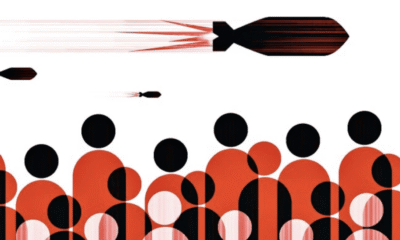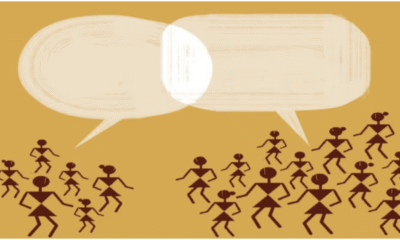|
Getting your Trinity Audio player ready...
|
Kashmir needs a new leadership, built not on the separatist narrative of the 20th century but on the development narrative of the 21st century. It is here that the investment and focus of the central government should go.
For the separatists in Kashmir, the winter chill has set in early. And it is likely to be a long haul. The heat and dust of separatism and terrorism, that had been the bread and butter of many of leaders in the Kashmir Valley, seems to have lost steam. These leaders, who had consistently been fed on the staple of separatism and special status, find the new reality unfathomable. But the people of the Valley are at least thinking about it, even if they are not openly supporting the Narendra Modi government’s move to nullify Article 370 of the Indian Constitution.
Two weeks have passed since the passing of the presidential orders bifurcating the state of Jammu and Kashmir into two union territories and nullifying several clauses of Article 370. The popular response to these two decisions in the Valley has largely been subdued. No major violence has taken place nor has there been any terror attack. Initially, there were severe restrictions on the free movement of people, including round-the-clock curfew. But, most of the restrictions have been relaxed, either partially or fully. Vehicular movement on the streets of Srinagar and elsewhere is slowly returning. Curfew has been removed in most parts. Schools and markets are open. Life is limping back to normalcy after a few days of preventive restrictions.
For people like me, who have seen the worst form of terrorist and separatist violence in the past, including the aftermath of the neutralisation of Burhan Wani, sporadic incidents of violence in a few places in the Valley are not really that serious.
Critics attribute this absence of a public outburst in the Kashmir Valley to the deployment of security forces in large numbers or to the internet blackouts or to the round-the-clock curfew restrictions. But, then, none of this is new to the people of the Valley. Increased presence of the forces and internet blackouts have been a regular feature in the life of the terror-stricken areas of the Valley. Yet, in the past, people used to come out on the streets in large numbers, pelt stones and clash with the security forces, leading on some occasions to casualties. In fact, “one dead body a day” used to be the strategy of the separatist and terrorist establishment because each casualty would be used to foment more trouble and violence.
That is no longer the scenario in the Valley. Perhaps people have been taken aback by the turn of events. It has still not sunk in fully. The staple of separatism and special status, on which they were fed for decades, must still be causing consternation in their minds. Yet, they don’t seem to be blindly buying into the other narrative anymore like in the past. They have paused and are thinking.
One reason could be the experience of the last five years. Globally, democratic politics is changing. It is the era of strong and decisive leaders who know how to mould public discourse. The Modi era in India has seen a large-scale shift in public discourse — from the pessimism of the past to optimism about the future. The Valley is not insulated from that futuristic discourse. Through the development narrative, the Modi government has moved closer to the hearts and minds of the people in the Valley, like in the rest of the country. The merchants of separatism in the Valley’s politics have missed this shift and are stuck in the old discourse, making themselves gradually irrelevant.
The formation of the first ever BJP government in the state, together with the PDP, has helped in building up this narrative in many ways. First, it has robbed the separatists and terrorists of their political mouthpiece. The PDP used to act like a political organ of the separatists in the Valley. Having aligned with the staunchly nationalist BJP, the PDP was forced to distance itself from that narrative, less out of conviction and more out of political expediency. Today, its efforts to return to that path are no longer viewed credibly. On the other hand, being in the government for three years has helped the BJP move closer to the people of the Valley. Various sections of the Kashmiri society had an opportunity to watch the party from close quarters. I have interacted with thousands of people from all walks of life, including separatists, in the last few years. It has certainly helped in winning over significant sections of the Valley’s social leadership. Today, the calmness in the Valley is partly due to those sections of the social leadership, that include, students, youths and the non-PDP, non-NC political leadership, that have engaged with the BJP and Narendra Modi over the past few years.
It is a good sign. Once they stop and think, people realise the falseness of the narrative that they have been fed all these years by leaders from the Valley and across the border. The so-called special status has only benefitted the leaders and their cohorts; its removal will bring the fruits of development to the doorsteps of ordinary citizens of the Valley. Having given conflict a chance for several decades and ending up impoverished, directionless and insecure, the people of the Valley should give a chance now to the new narrative being offered by Modi.
“The best argument against democracy is a five-minute conversation with an average voter,” commented Winston Churchill. This is a significant reality in the Kashmir Valley. The misuse of power by a handful of leaders in the Valley has left the ordinary Kashmiri in misery. But then, the best argument for democracy is also to build confidence through humane development — the Modi way. For that, Kashmir needs a new leadership, built not on the separatist narrative of the 20th century but on the development narrative of the 21st century. It is here that the investment and focus of the central government should go. Failing in that will mean a return of not just the old leadership but the dreaded old narrative of separatism and conflict.
(The article was originally published in Indian Express on August 22, 2019. Views expressed are personal)



